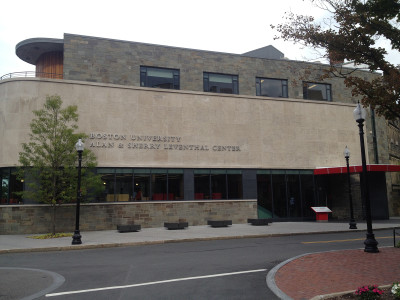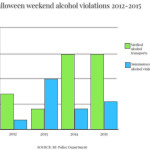
Inside Higher Ed and Gallup released the results of a joint report Thursday that reveal the pressures and controversies within college admissions, emphasizing the differences in practices between public and private institutions as well as how admissions practices can affect the choice of students interested in applying.
The report, although conducted every year, was adapted this year to raise new issues, including what types of materials are best for the admissions process and what the effects of student debt are on the application process.
According to the report, 51 percent of admissions directors surveyed said they were very concerned about achieving enrollment goals for the 2015-2016 academic year. Fifty-eight percent of directors said they did not meet their goals.
Scott Jaschik, an editor of Inside Higher Ed as well as co-author of the report, titled “Pressure From All Sides: The 2015 Survey of Admissions Directors,” said he was not surprised by the pressure admissions departments staff face.
“The whole university or college [and] the president and the board need to have realistic expectations about the size of a class and the various measures in quality of the class,” Jaschik said. “… Not all [institutions] can go up in quality every year. Some institutions can, but not everyone, so institutions need to figure out what is realistic for them and have realistic goals.”
Kelly Walter, associate vice president and executive director of admissions at Boston University, wrote in an email that the work of admitting new students is a collaborative effort between university administration and her colleagues across BU.
“New students are the lifeblood of an institution and it is critical for enrollment targets to be set and successfully achieved every year,” she said. “This virtuous cycle of attracting prospective students, building an applicant pool, and enrolling the best and brightest students is why many admissions professionals feel not only pressure but great responsibility to their institutions.”
With rising costs of tuition nation-wide, the fear of student debt has become more prominent when choosing an academic institution, the report found. Seventy-six percent of admissions directors surveyed believe students’ concern about debt is causing them to lose applicants, according to the report, and these concerns hold more weight at private institutions.
BU spokesman Colin Riley said in an email that the BU Admissions office does a great job assisting prospective students and their families financially. He said the cost of higher education is a popular topic of discussion in the news and in the minds of students and parents while applying to colleges.
“Part of [the college search] includes understanding how to apply for financial assistance and the deadlines … of the required financial assistance forms and scholarship applications,” he said. “The university’s Financial Assistance office has all the information an applicant needs and also is available to answer questions from students and their families.”
Virginia Sapiro, a professor of political science in and the former dean of the College of Arts and Sciences, said in an email that although student debt is a problem, education is an investment for a lifetime of well-being.
“As far as the comparison between BU and other places, if you take as a sign of a problem defaults on loans, then very few BU alumni default on their loans compared with most schools,” she said.
Several BU students said they believe the cost of higher education is unfair and should be changed so that finances and the fear of student debt don’t dissuade potential applicants.
“I think that student debt is a big problem, it is ubiquitous, it is going around at every school, the only way that it can get better is if schools lower their price or become a little bit more charitable,” said Francis Zamora, a freshman in CAS.
Qiyuan Fu, a junior in the CAS, said tuition is a crucial factor when determining where to apply to school.
“I think definitely if [a student] cannot afford [tuition], or will be in huge debt after graduation, it definitely is something to consider when applying,” Fu said. “ I imagine that there will be a large number [of students deterred from applying to BU.]”
Elizabeth Mignon, a senior in the Frederick S. Pardee School of Global Studies, said she believes student debt limits students in where they apply, which in turn hurts the school itself.
“If you look at more socialist states, most students, almost every student, has the opportunity to study wherever they want to, which allows for them to get the best pool of people,” she said. “So I definitely think the U.S. has to catch up in that sense otherwise we are going to be missing out on some incredible minds.”




